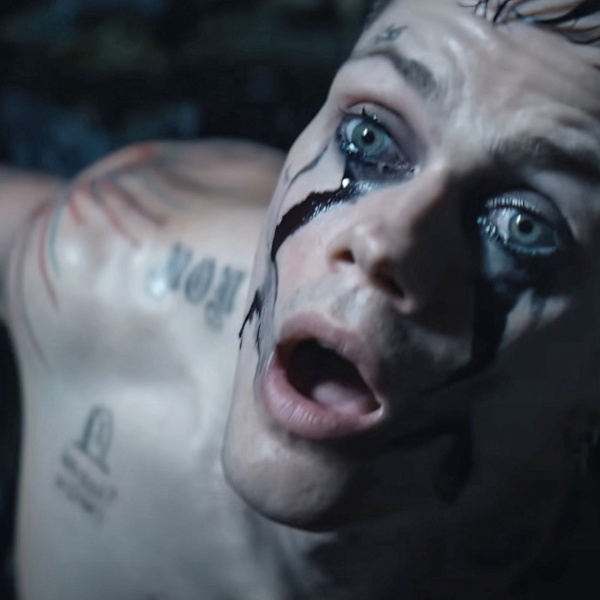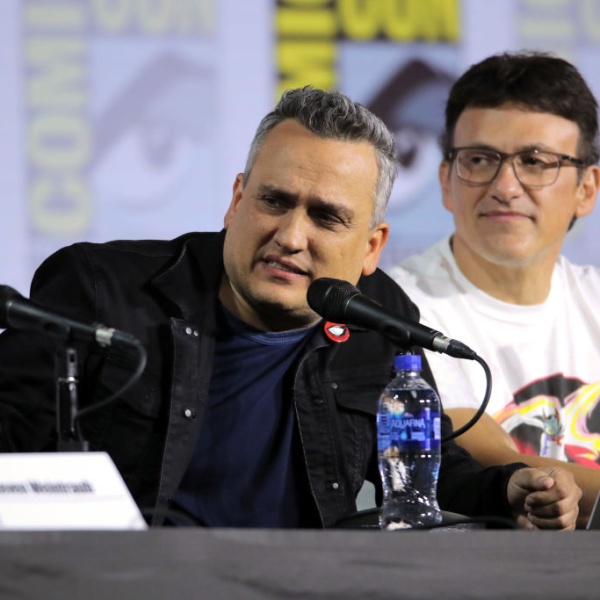
We love a chameleon here at The Playlist; few things make us happier than a director who’s able to leap between genres and style with aplomb. And Swiss-born director Marc Forster is, if nothing else, a chameleon. In the decade since he broke through in the U.S. with “Monster’s Ball,” the helmer has tackled grim drama, charming period biopics, supernatural thrillers, quirky comedy and tentpole actioners, to name but a few. Some worked, some didn’t, but he’s not likely to be predictable any time soon.
The director’s currently bowing his latest film at TIFF, the Gerard Butler drama “Machine Gun Preacher,” which will begin it’s wider roll-out next Friday. Forster took some time out of the shoot for his 2012 Brad Pitt-starring blockbuster “World War Z” to talk to The Playlist, and while we ran some of our discussion, focusing particularly on “Machine Gun Preacher,” over the weekend, below are five highlights from our wider discussion, ranging from how he approaches each movie, to his Bond entry “Quantum of Solace” and “World War Z.”
1. The director thrives on the threat of failure.
Forster’s been at every end of the success spectrum so far in his career, from the colossal commercial hit “Quantum of Solace” to the Oscar-nominated “Finding Neverland,” to the virtually-buried, critically derided “Stay.” As such, he’s maybe a little more philisophical about the prospect of it all going badly; “I feel like every time I take on a movie, it’s important that the possibility of failure exists, and of the unknown, because it’s a challenge to do something I haven’t done before and something I have to try to work out. Because every filmmaker, every artist, every person who’s trying to create something, you cannot [always] succeed, but you can eventually have failed and succeed again.”
2. Telling the story of a real person comes with its own set of challenges.
For all his diversity, Forster’s never directly told the life story of a living person before, and it proved to be a difficult undertaking: “it makes it more challenging doing a portrait of a living person because that person has a life span of 30 years or 50 years to cover in two hours. And to sort of capture the spirit and the essence of that and so many emotional turns and twists within themselves was quite a challenge.” With subject Sam Childers still alive (and clearly capable of some ass-kicking), Forster had to be a little worried, right? “Sam saw the movie two weeks ago, and he and his friends and family felt like I captured that, what he represents, which I’m really pleased with, that the people who I was trying to portray see a reflection of themselves in the movie.
3. While acknowledging its difficulties, Forster still defends his Bond entry “Quantum of Solace.”
Compared to its predecessor, “Casino Royale,” Forster’s 2008 James Bond film didn’t get good notices from critics, although it remains the highest grossing movie in the series. The director admits that there were drawbacks with heading into such a big property. “‘Quantum of Solace’ was a bit of a different circumstance than a lot of my other films because you’re stepping into a franchise, and also in that particular film, we’re dealing with a script from the writer’s strike, which was difficult to handle because there was never time to really develop a finished script. Most of the time was about scouting locations more than what was on the page.” All that being said, he likes the film, while acknowledging that it may not have been what people were after from a Bond picture: “I’m very pleased with how the film turned out. I do think in the third act, some of it I wish we could have had more time to develop the script in a more profound and in-depth way… It’s just that it was a very intensified and rushed experience. People are always looking for what they love most in that particular franchise, and ultimately you can’t please everyone. I was very aware going into it that my objective in that particular film was to make it more like a ‘70s, very straightforward revenge movie, and that sort of pace was my point of view.”
4. All being well, “World War Z” won’t just be a blockbuster, but will follow the best in the genre and say something about the world we live in today.
Some fans have been wary of Forster’s approach to Max Brooks‘ fake oral history “World War Z,” which is currently filming, and is said to depart significantly from the source material. But the director hopes that, while the film will be entertaining, it’ll also have a brain. “Zombies have always been a metaphor for the darker side of humanity. In the ‘70s with George Romero, when “Dawn of the Dead” came out, it was a criticism of consumerism and so on. I do think that as that has picked up steam, it’s a very interesting time we live in with the Middle East and even what happens in the U.S., and I feel one could say a lot, and that’s just purely as a political platform, but also an entertaining platform. You can combine the two in a way that has a meaning as a metaphor for the times we live in at the same time as doing a genre picture.”
5. Forster aims to approach each film as if it were his first.
Fifteen years and ten films into his career, Forster is approaching ‘veteran’ status, and somewhat aware of that. But the director’s hoping he never loses touch with the rush that comes with coming to directing for the first time: “The interesting thing is that when you start out, people have no judgment and they see you young and fresh as a filmmaker – and because you have no experience yet, you’re much more naïve and think anything is possible. There’s no fear, no nothing, and you just go forward with your thoughts all of the time. But the more you know, obviously the more you become aware of what might be limitations or not, and people might have expectations of what you do and so on… The key thing is that you start every film from sort of a blank page, almost like you discover it like a child discovers a new world. You don’t have to limit yourself too much with past experiences or preconceived notions, you really are free to paint freely. It’s like Picasso always had a saying that he was able to figuratively paint everything perfectly, like a house or a tree or whatever, and always the hardest thing was to learn to go back and paint like a child.”
“Machine Gun Preacher” opens in New York and Los Angeles on September 23rd, and goes wider the following Friday, September 30th.



